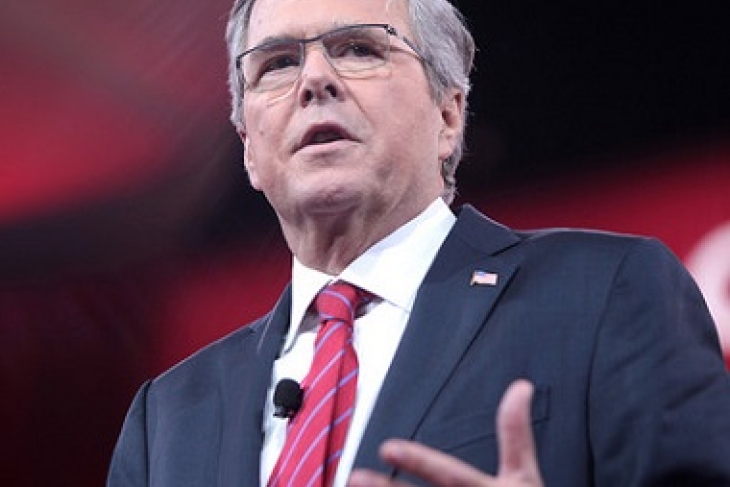Education reform has been a specialty of Jeb Bush’s, and his track record on this issue in Florida is unbeatable. He knows the topic up, down, and sideways. But he’s never had to deal directly with federal policy before, so I picked up his “education vision” paper with interest to see how he and his team would approach it.
In my view, it deserves at least two and a half cheers—which is a cheer or two more than any other candidate has earned on this issue, mute as they’ve been on the topic. He has perfect pitch on K–12 issues and the (limited) federal role therein. Here and in the pre-K realm, the quality of what kids end up getting will depend—as it must—on how states manage their newfound authority and how well parents select among the choices before them.
On the post-secondary side, Governor Bush has made some smart and creative suggestions, such as replacing student loans with lines of credit that college-goers pay back over time with a set share of their future income, as well as eliminating defaults and collection agencies by using tax withholding to collect repayments. I applaud his wisdom in looking beyond just paying for what we have today and asking what different options tomorrow’s students need.
Why the missing half-cheer? The Bush paper is fine on Washington’s continuing obligations in education R&D. But it appears to be silent on the crucial federal role in generating reliable statistical and assessment (NAEP) data—and on the urgent need to rein in an Office for Civil Rights that’s run amuck in recent years, even while ensuring that individuals are shielded from illegal discrimination. Finally, here’s my own hobby horse: I would have loved to see him offer something forceful regarding the absolute need for students to acquire content knowledge, especially in history and civics.
So, yes, I’m cheering, but not quite as boisterously as I would like.

